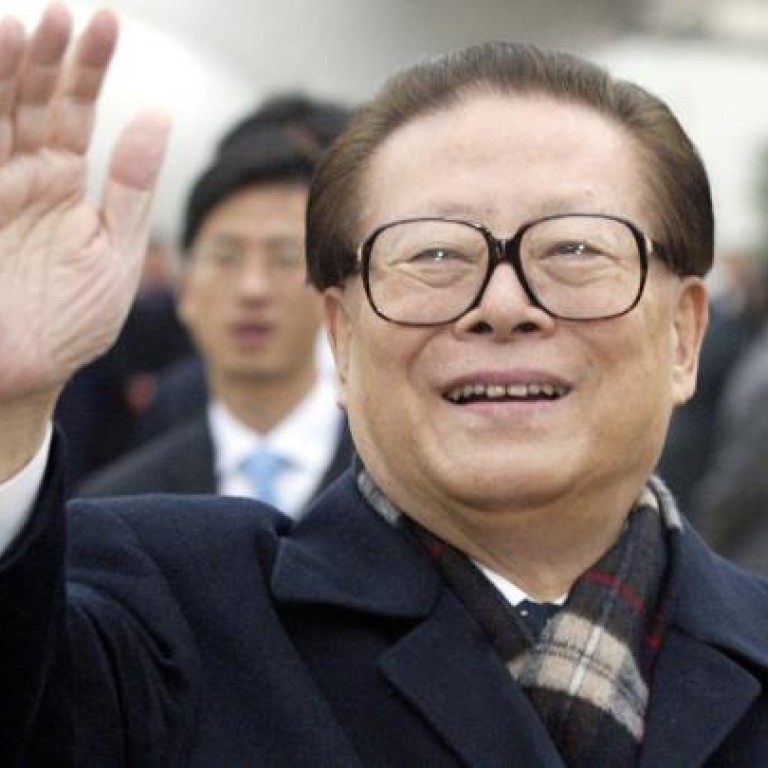
Former China president Jiang Zemin played key role in punishing Bo Xilai, say analysts
Analysts say the ex-president's backing helped break a months-long impasse over how harshly to punish the former Politburo member
Jiang Zemin is believed to have played a key role in Beijing's decision last week to bring the hammer down on Bo Xilai - the latest demonstration of the former president's political clout ahead of the once-a-decade leadership succession.
Analysts said Jiang provided crucial support to breaking the months-long impasse over how harshly to punish the former Politburo member, whose downfall plunged the country into its worst political turmoil in decades.
Jiang's backing helped outgoing President Hu Jintao and his heir apparent, Xi Jinping - who is believed to be a Jiang protégé - broker a critical deal on how to handle Bo, whose wife murdered British businessman Neil Heywood.
Despite their differences on a wide range of personnel and policy issues, it is understood that Hu and Xi were in full agreement on the need to oust Bo, whose anti-triad crusade and Maoist-tinged populism struck some in Beijing as a public challenge to their leadership.
But their plan to punish Bo to the fullest extent of the law met much resistance, due to Bo's pedigree as the "princeling" son of a revolutionary elder and his popularity among hard-core leftists at all levels of society. Although Jiang is considered part of that same hardline faction, he is also a supporter of Xi's, whom the former president and his allies tipped to succeed Hu at the last party congress in 2007. Jiang's move five years ago upset Hu's own succession plan which favoured Vice-Premier Li Keqiang .
"Jiang gave his endorsement to Hu and Xi because Bo's controversial manoeuvring effectively offended Jiang and challenged the transition scheme he proposed five years ago," said Johnny Lau Yui-siu, a Hong Kong-based political observer.
Bo's high-profile campaigns after becoming Chongqing party secretary that same year were seen as an attempt to demonstrate his discontent with Xi, a fellow princeling, and prove that he was the country's most capable leader, Lau said.
The issue was so important to Jiang, who retired from formal party office, that Lau said it was possible he attended Friday's Politburo in Beijing. It was at that meeting that the decision was made to expel Bo from the party and subject him to criminal prosecution over bribery, corruption and helping to cover up Heywood's murder.
"It is very rare that no TV footage of the Politburo meeting was aired, which indicates something unusual may have happened," Lau said.
"I think Jiang may have shown up at the meeting, which the leadership obviously did not want to make public."
Bo's wife, Gu Kailai , was given a suspended death sentence. His former police chief, Wang Lijun , whose attempted defection to a US consulate in February exposed the Bo family's ties to Heywood's death, was sentenced to 15 years in jail. Bo himself may face a harsh penalty, including possibly capital punishment.
Professor Zhang Ming , a political analyst with Beijing-based Renmin University, also believes Jiang threw his weight behind cracking down on Bo.
"It appears that mainland authorities wanted to protect Bo from harsh punishment when Gu stood trial in August because his name was not mentioned at all throughout the trial," Zhang said. "But things changed eventually."
Sources close to the party's internal investigation into Bo said that Hu had preferred to transfer Bo's case to judicial authorities at the outset rather than dealing with it internally first. The quasi-official Hong Kong China News Service also reported that Xi favoured punishing Bo to the fullest extent of the law.
Just as Bo's downfall dealt a blow to the resurging neo-Maoists, it could also serve to boost the party's reformists, such as Guangdong party secretary Wang Yang , a one-time Bo rival who has been widely tipped for promotion.
Government-controlled news portals and newspapers splashed stories about Wang denouncing Bo at a provincial party committee meeting the day after the Politburo meeting - the first local cadre to do so publicly.
Analysts agreed that Jiang, 86, who seems to have recovered from a serious illness last year that fuelled rumours about his death, would continue to work behind the scenes to influence key personnel decisions for the 18th national party congress slated for November 8.

